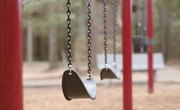From teen pregnancy to drug abuse, the problems high schoolers face are the subject of news reports, school board meetings and national concern. Teens, however, are not hard-wired for destructive behavior. Instead, their family, school and peer environments strongly affect their behavior. Educators, parents, community members and other adults can all institute strategies that help teens choose positive behaviors and that enable them to take steps toward bright futures.
Healthy Social Skills
The National Association of School Psychologists argues that strong social skills play a major role in healthy decision-making among teens. Children with poor social skills are more likely to become entangled in the criminal justice system, have more problems with depression and anxiety and are more likely to be violent. Adults can help teens improve their social skills by modeling healthy social interactions. Encouraging empathy and allowing teens to freely discuss their own feelings can help them become socially competent. In-school social skills programs that encourage children to role play can also help.
Modeling Appropriate Behavior
Teens surrounded by adults who make positive decisions are much more likely to make positive choices themselves. For example, a teacher who berates her students for their failures is modeling aggressive and bullying behavior, while a teacher who builds upon her students' strengths teaches them to do the same in their interactions with others. Parents who regularly drink teach teens that drinking is an acceptable way to cope with stress or have fun, while adults who model restraint and healthy coping skills teach teens that they don't need dangerous substances to cope with challenges.
Making School Safe
A school environment that feels unsafe can be a major contributing factor to problem behaviors. Bullying, in particular, can damage self-esteem, cause teens to resort to drug and alcohol abuse and encourage them to bully others. Anti-bullying programs, both in school and through independent organizations, can reduce the impact of bullying, while zero tolerance policies for violence can help teens feel safer at school. Parents, teachers, community leaders and interested adults can lobby for schools to take bullying seriously and to intervene early when a student either behaves violently or is the victim of violence.
After School Support
The hours immediately after school are a dangerous time for teens, who are more likely to experiment with drugs, alcohol and sex when left unsupervised. After-school programs can give teens a healthy outlet that reduces their likelihood of making negative choices. Extracurricular activities such as sports and music can also help. The New York State Public High School Athletic Association reports, for example, that female high school athletes are 80 percent less likely to use drugs.
Related Articles
References
Writer Bio
Van Thompson is an attorney and writer. A former martial arts instructor, he holds bachelor's degrees in music and computer science from Westchester University, and a juris doctor from Georgia State University. He is the recipient of numerous writing awards, including a 2009 CALI Legal Writing Award.











